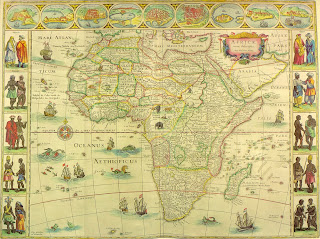
Conquest.
It is what has led to confusion of identity all over the world. Often post-colonial societies wonder how to preserve pre-colonial themes without being ashamed of being considered primitive and be able to compete in the globalized economy. There is so much shamed wrapped up in the dilemma of post-colonial issues. For example in several cultures, women were the cross-roads and the integral part of communication between White/ colonial members of society and native people who were being colonized. For example, La Malinche was the communicator between The Aztecs and the Spanish. Comfort women in India were the communicators and interpreters for the British officers so they understood Indian culture and its complexities. Sacajawea helped Lewis and Clark see the vastness of Western America. The reason I say shame is because it is often a lusty relationship. The indigenous woman is not just an interpreter(by indigenous, I mean in the context of colonialism. It was her place of birth and culture before Western influence of colonialism), she is also a lover. Fascinating isn't it that it is the woman, not the man who brings in the Western influence and diffusion of innovations in the contexts of colonialism? Why is this so? Many poets like Octavio Paz, would say the land itself is like a sweet virgin and the moment another culture with the attention of domination comes in, this exogenous culture is the chingado or the violator. Sex and gender plays an integral part to conquest because it is carnal, says the scholar. In fact, when I was listening to J. Ann Tickner speak earlier this year at American University about post colonial feminist issues, she described how old maps were designed. Countries like England were portrayed as White women sitting on swans, dressed in soft white place seated on a swan while Africa and Latin America were portrayed as naked women with large breasts, dark and supple seated on a wild animal.

See the difference?

I want to explore what it means to conquer, its process, what identity means both as a dominant culture and as a not as dominant, aggressive culture like colonial pressure, and then what that means to post-colonial society. Why study it? Well where do places like Africa and Asia and Occidental nation-states go from here when they were constructed from a colonial construct? What does it mean to be a post-colonial society? It matters because if we understand this sentiment, we can understand development and how to help distressed nations facing genocide fueled by tensions from colonial constructs. We can also see if conquest is inevitable or not. And if it is, how do we minimize damage? If it isn't how is it preventable? Should it even be preventable? This is part one to a several part series on cross-culture communication in terms of post colonial cultures and how they cope with inflicting identity and where they go from here. I know it is going to be an emotion, convoluted, and interesting journey. But I think it needs to be addressed.


No comments:
Post a Comment